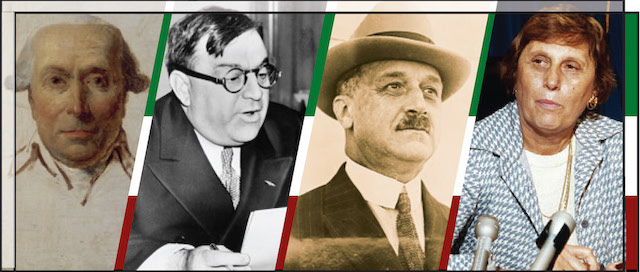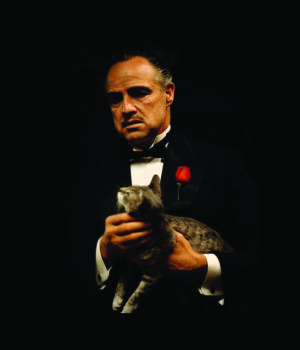
On March 14, 1891, in New Orleans, 11 Italians found not guilty in a murder trial were dragged from their jail cells by thousands of enraged citizens, who promptly shot and hanged them.
More than eight decades later, on March 14, 1972, another assault on Italian immigrants took place, this time on a cultural level. On that day, “The Godfather” premiered at the Loew Loew’s Theater in New York. The epic gangster film broke box-office records and set the standard for movie blockbusters on the way to becoming an American classic, replete with memorable quotes like “Leave the gun. Take the cannoli.”
The film was rereleased nationwide with considerable fanfare on Feb. 25 as part of a 50th anniversary celebration. So how is this cinematic icon an “assault” on Italian immigrants? Before I get into that, two points need to be made:
1) Liking the film doesn’t make anyone a racist, or even anti-Italian. It’s possible to appreciate the film’s craftsmanship, such as Gordon Willis’ burnished cinematography, without succumbing to the rabid hatred that inflamed the mob in New Orleans in 1891.
2) When Italian Americans express disdain for the film, we’re referring to the way it portrays us, nothing more. In no way are we likening that misfortune to the far greater sufferings of other groups, like European Jews during the Holocaust or African Americans in the Jim Crow South.

That being said, “The Godfather” does indeed constitute an assault, not only on Italian immigrants, but on Italian culture. Stanley Kauffman of the New Republic, one of the few film critics to pan the movie, put it best when he wrote: “There’s no counterpoint to the Corleone family.”
Bingo! What he means is that there’s no balance. Every man and woman in the film is “connected” to organized crime, and the only truly positive character is a non-Italian: Michael Corleone’s wife, Kay Adams.
In the absence of any contrary portrayals to speak of in that landmark film, and in most other movies and TV shows for decades thereafter, an equation has formed in the American mind: “Italians + crime = Italian culture.”
I’m no math whiz, but that just doesn’t add up. I’m a former English teacher, and language is my comfort zone. My solution to the damage done by this cinematic trend is to reclaim some of the words and phrases that have been befouled by it.
Godfather — America does have a real Italian godfather: Filippo Mazzei. He was a Tuscan political philosopher and avid supporter of the American Revolution. A passage in a letter to his close friend Thomas Jefferson inspired the phrase, “All men are created equal.”
Five Families — Forget about the Corleones, et al. Let’s raise a glass to the five Italian families that transformed the American wine industry: Sebastiani, Sbarbaro, Gallo, Mondavi and Martini. A salute!
Soldiers — Two of the most decorated heroes of World War II were Italian American: ace fighter pilot Don Gentile, who received the Distinguished Service Cross from Gen. Dwight D. Eisenhower, and Marine Sgt. John Basilone, who earned both the Medal of Honor and the Navy Cross.
Family Business — A.P. Giannini was to banking what Rockefeller was to oil and Carnegie was to steel: an American giant. And unlike many of his fellow titans of commerce and industry, he was ethical to a “t.”
One term the genre can keep is “mob wives.” I’m holding out for a biopic about Ella Grasso, who balanced motherhood on the way to becoming the first female governor in the United States to be elected on her own, without succeeding a husband or being appointed.
Regarding Hollywood’s frequent portrayal of Italians as foul-mouthed racists, counterpoints abound, including New York Mayor Fiorello LaGuardia, who appointed Jane Bolin the nation’s first Black female judge, and Barney Ales (Alessandro), who successfully promoted Motown to a wider white audience.
It’s time to replace the long, dark shadow cast by “The Godfather” and its ilk. The blood, sweat and tears of our immigrant ancestors deserve so much better.
For a video created by the author, click here.
A version of the above previously appeared in the Daily Herald. The above appears in the April 2022 issue of the print version of Fra Noi. Our gorgeous, monthly magazine contains a veritable feast of news and views, profiles and features, entertainment and culture. To subscribe, click here.
 Fra Noi Embrace Your Inner Italian
Fra Noi Embrace Your Inner Italian






